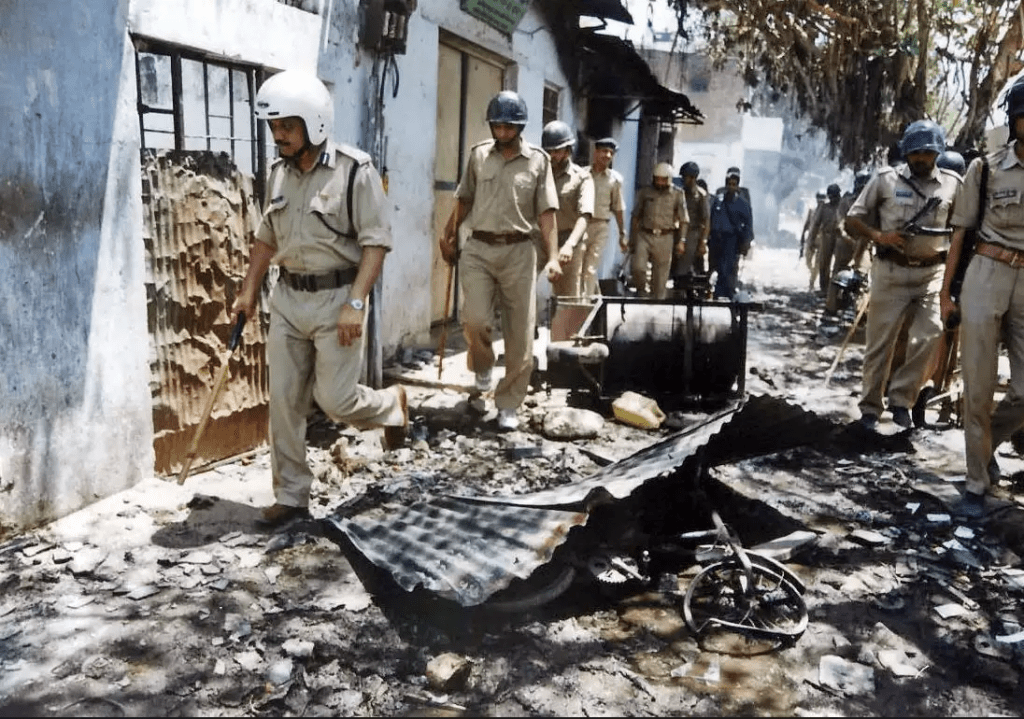
In the 2002 post-Godhra riots case, a sessions court in Halol, Gujarat, acquitted 35 people on Monday. The court blamed “pseudo-secular” media, politicians, and witnesses from the Muslim community for the lengthy trial “prominent Hindus” endured in the case [State of Gujarat vs. Mahesh Dinubhai Valand].
According to Judge Harsh Trivedi, organizations and pseudo-secular media put pressure on the police to arrest these individuals.
The Court stated that the riots in Gujarat were unplanned and not planned as claimed by pseudo-secular individuals.
The court stated that pseudo-secular politicians and the media exerted tremendous pressure on the Railway Police a day after the Godhra Train Carnage.
“This incident shocked and grieved the peace-loving Gujaratis. We know that politicians and pseudo-secular media at the time added salt to the already-sour people’s wounds. The judge made this observation in his order: “Report says that 16 of Gujarat’s 24 Districts were engulfed in communal rioting – post Godhra riots (sic).”
The judge concluded that the police improperly implicated the accused in the case.
“Doctors, professors, teachers, businessmen, panchayat officials, and other prominent Hindus in the area were implicated by police. is a member of the Hindu community. “The accused persons have unnecessarily faced a prolonged trial (sic) due to uproar of pseudo-secular media and organization,” the Court emphasized.
It was looking into a case involving communal violence in the Halol area of Godhra district, where Muslims’ homes, businesses, and other property were allegedly damaged by thousands of “fanatic” Hindu mobs.
The judge made the observation in his order that communal violence is not a new phenomenon in India.
According to the order, “Communal riots in India have persisted for a long time and are usually caused by the slight dispute and intolerance, manipulation of religious artifacts, intrusion by others on festivals, conflicting prayer time, dispute over places of worship, intermarriage, desecration of holy places, sexual offences, rumors on issue of encroachments or the presence of anti India agents (sic),” and “rumors on issue of encroachments or the presence
The judge came to the conclusion that the prosecutor had been working under the influence of some community-led NGOs, and as a result, he or she had called a lot of witnesses, which made the case go on for too long. The court found that almost all of these witnesses were completely unreliable.
“In our country the norm of truth among the populace is exceptionally low. In this case, almost all of the witnesses’ accounts were shown to be completely untrustworthy. a number of Muslim individuals who were said to have been the victims of communal violence in Delol, Derol, Kalol, and other locations. had presented their grievance in writing and orally to various higher authorities. After reading those allegations, moving on to the next. The judge remarked, “I found that every time they introduced new story (sic).”
The judge stated that the prosecution witnesses, particularly Muslim witnesses who allegedly experienced hardship during the riots, provided widely varying accounts of the events.
The judge went on to say that communal riots typically involve a large number of people, and the evidence is typically entirely partisan.
“The tendency of the parties in such cases to attempt to falsely implicate as many of their enemies as they can also poses a significant risk of innocent people being implicated alongside the guilty.” Therefore, the Court stated, the possibility of innocent people being falsely implicated should always be considered.
The judge also made the observation that the case investigation took a long time because people from the Muslim community kept making the same, repeated, written allegations.
The court then concluded that the prosecution had failed to provide independent witnesses to support the recovery and seizure of weapons from the accused.
“There is no direct evidence that can link any of the five accused with the alleged offense,” the statement reads. In the event that this occurred, members of both communities’ properties were damaged, and a Muslim mob pelted police officers, injuring them. Despite this, “there is no certainty that there were at least five persons in the mob, sharing the common object,” according to the Court. “In spite of this, the prosecution is not able to call section 149 (dealing with punishment for being part of an “unlawful assembly”) in aid.”
Name -Sandeep K. Pareek, BALLB(2nd sem.), RNB Global University





0 Comments